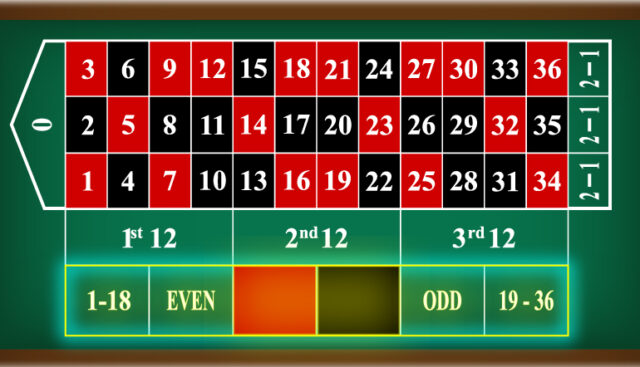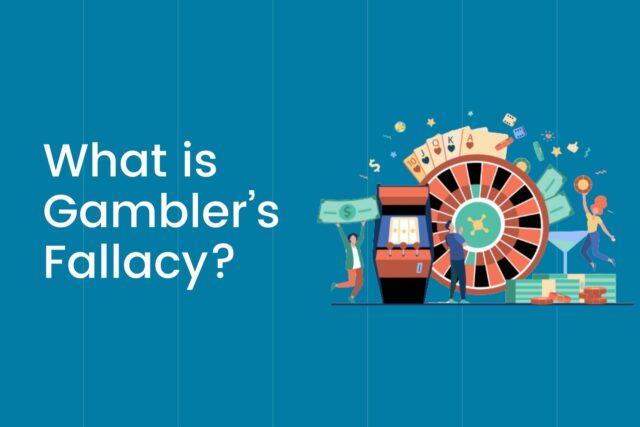
When it comes to gambling, many beginners are drawn to the allure of various betting strategies that claim to guarantee success and beat the casino odds. However, it’s important to understand that no strategy can overcome the house edge. Whether you’re playing at a live casino or online gambling sites, the house always has the advantage.
In this article, we will explore some popular betting strategies and explain why they ultimately fall short. Instead, we will focus on the importance of understanding odds, game rules, and payout ratios as the foundation for a successful gambling experience.
Gambler’s Fallacy
The Gambler’s Fallacy is a common belief in the gambling industry that suggests the more an expected event fails to occur, the more likely it is to happen in the future. For example, if a coin lands on heads five times in a row, the fallacy predicts an increased likelihood of the next flip landing tails. However, this theory is false.
The Gambler’s Fallacy is often applied to games like roulette and craps which can be found on these top 10 casino sites to play. It’s crucial to understand that each spin in roulette or roll of the dice in craps is an independent action. The result of one turn does not influence the result of another. A famous example of the Gambler’s Fallacy occurred in 1913 at the Monte Carlo Casino, where a roulette wheel had 26 black spins in a row. While this was an extremely rare occurrence, the 27th spin had the same chance of landing red as the first spin.
Martingale System

The Martingale System is a specific betting system that involves doubling each bet until a win is achieved. The idea behind this strategy is that statistically, you are bound to win eventually, and doing so will recover all your losses plus a profit equal to your initial bet.
For instance, let’s say you start with an initial bet of $5 and lose. You then increase your next bet to $10, followed by $20 and $40. If you win after your $40 bet and the payout is 1:1, you would win $80 after wagering a total of $75 ($5 + $10 + $20 + $40), resulting in a $5 profit.
However, the problem with the Martingale System is that a win may not occur for an extended period, or even at all. The bets accumulate rapidly, and you can quickly reach a point where your bankroll is insufficient to cover further losses. For instance, if you started with a $5 bet on a game with 1/10 odds of winning, statistically, you would have to bet a total of $5,115 to cover your losses and win your initial $5 bet. Unless you have an unlimited bankroll and there is no table limit for a single bet (which is often not the case), using the Martingale System poses a significant risk of experiencing a devastating loss.
Fibonacci System

The Fibonacci Betting System has been around for nearly 900 years and shares similarities with the Martingale System. However, it takes a more gradual approach. The betting sequence in the Fibonacci System follows an algorithm: 1-1-2-3-5-8-13-21-34, and so on.
In this system, each bet equals the sum of the two previous bets. After a loss, players continue through the progression, while after a win, they jump back two spaces. For example, if you win $13, your next bet would be $5.
The Fibonacci strategy allows you to reclaim losses two at a time, and the system ends when you return to the original bet and win. Although the Fibonacci System helps limit the size of your losses, it suffers from the same fundamental flaw as the Martingale System. If you encounter an extended losing streak, you may exhaust your bankroll before a win occurs.
Paroli System

The Paroli betting strategy takes a different approach compared to the aforementioned systems. It aims to capitalize on hot streaks and typically results in short-term losses with occasional significant wins. Players increase their bets by a predetermined amount for a predetermined number of consecutive wins, often using a sequence like 1-2-3-6.
Under the Paroli System, players place even-money bets (payouts of 1:1) and progress through the system only after a win. If a loss occurs, the system restarts. If four bets are won in a row, the player pockets the money and starts over. Here’s an example:
- Lose bet one or two: 1 credit loss
- Lose bet three or four: break even
- Win all four bets: 12 credits total win (12:1 overall payout)
To make the Paroli progression work, a player must win four bets in a row before experiencing 12 one-credit losses. Mathematically, this scenario is not realistic. The actual calculations depend on the game’s odds, but for an even-money bet in European roulette (e.g., red/black, even/odd, high/low), you can expect approximately one 12:1 winning sequence per every 13.6 single credit losses.
Final Thoughts
While we have discussed four common betting strategies, it’s essential to recognize that countless others exist. However, the underlying truth remains the same: the house edge is an inherent aspect of every casino game. Merely altering the way you bet on these games will not alter the overall outcome.
Instead of relying on betting strategies, beginners should focus on gaining a good understanding of the odds, game rules, and payout ratios for each gambling game they choose to play. By being well-informed, players can make more informed decisions, manage their bankroll effectively, and approach gambling as a form of entertainment rather than a guaranteed way to make money. Remember, luck plays a significant role in gambling, and responsible gambling practices should always be followed to ensure a safe and enjoyable experience.
In addition to understanding the odds and game rules, beginners must approach gambling with a clear mindset. Emotions such as greed and desperation can cloud judgment and lead to impulsive and irrational decisions. Setting a budget, knowing when to walk away, and never chasing losses are essential principles to adopt. Remember, gambling should be viewed as a recreational activity, and by combining knowledge, self-discipline, and responsible gambling practices, beginners can enhance their overall gambling experience and make it a source of entertainment rather than a source of financial stress.













